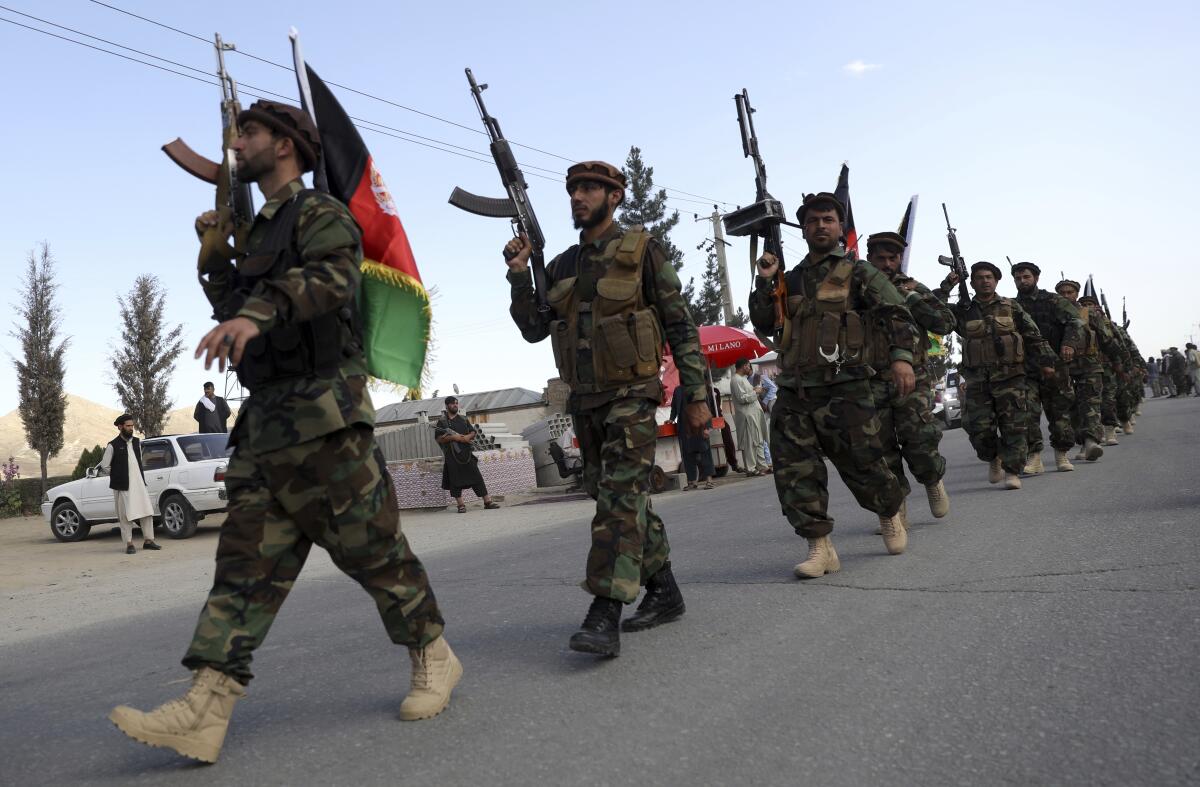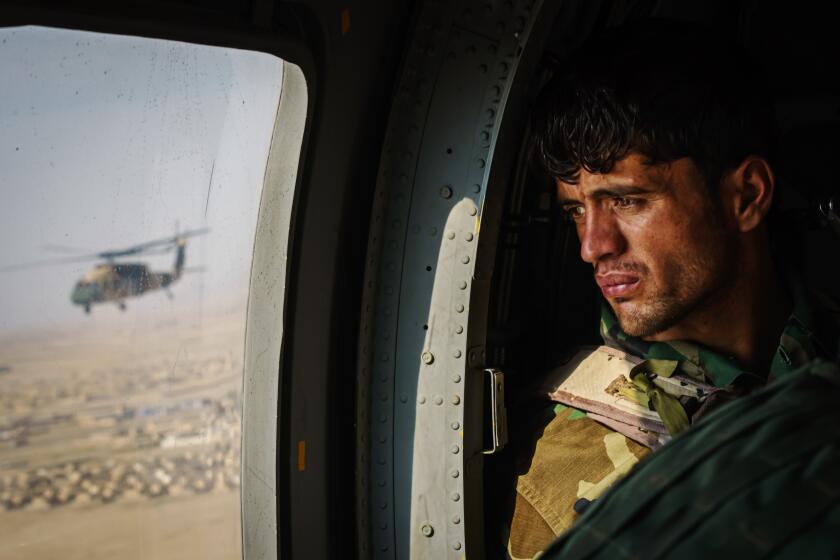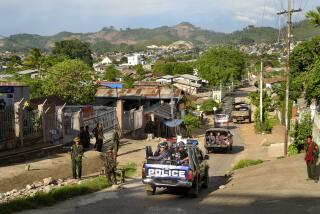Taliban takes districts in northern Afghanistan as troops flee

- Share via
KABUL, Afghanistan — The Taliban’s march through northern Afghanistan gained momentum overnight with the capture of several districts from fleeing Afghan forces, several hundred of whom fled across the border into Tajikistan, officials said Sunday.
More than 300 Afghan military personnel crossed from Afghanistan’s Badakhshan province as Taliban fighters advanced toward the border, Tajikistan’s State Committee for National Security said in a statement. The Afghan troops crossed over about 6:30 p.m. local time Saturday.
“Guided by the principles of humanism and good neighborliness,” the Tajik authorities allowed the retreating Afghan National Defense and Security Forces to cross into Tajikistan, said the statement.
Since mid-April, when President Biden announced the end to Afghanistan’s “forever war,” the Taliban has made strides throughout the country. But its most significant gains have been in the northern half of the country, a traditional stronghold of the U.S.-allied warlords who helped defeat it in 2001.
The Taliban now controls roughly a third of all 421 districts and district centers in Afghanistan.
The U.S. spent $8 billion building an Afghan air force in its own image. But how long can it last after American forces withdraw?
The gains in northeastern Badakhshan province in recent days have mostly come to the insurgent movement without a fight, said Mohib-ul Rahman, a provincial council member. He blamed Taliban successes on the poor morale of troops who are mostly outnumbered and without resupplies.
“Unfortunately, the majority of the districts were left to Taliban without any fight,” said Rahman. In the last three days, 10 districts fell to the Taliban, eight without a fight, he said.
Hundreds of Afghan army, police and intelligence troops surrendered their military outposts and fled to the Badakhshan provincial capital of Faizabad, said Rahman.
Even as a security meeting was being held early Sunday to plot the strengthening of the perimeter around the capital, some senior provincial officials were leaving Faizabad for the capital Kabul, he said.
As the U.S. hands over Bagram Airfield and the last combat troops prepare to leave Afghanistan, the question arises: When is the war really over?
In late June the Afghan government resurrected militias with a reputation of brutal violence to support the beleaguered Afghan forces but Rahman said many of the militias in the Badakhshan districts put up only a half-hearted fight.
The areas under Taliban control in the north are increasingly strategic, running along Afghanistan’s border with central Asian states. Last month the religious movement took control of Imam Sahib, a town in Kunduz province opposite Uzbekistan, and gained control of a key trade route.
The inroads in Badakhshan are particularly significant because it is the home province of former President Burhanuddin Rabbani, who was killed by a suicide bomber in 2011. His son, Salahuddin Rabbani, is part of the current High Council for National Reconciliation. The slain former president also led Afghanistan’s Jamiat-e-Islami, which was the party of famed anti-Taliban fighter Ahmad Shah Massoud, killed by a suicide bomber two days before the 9/11 attacks in America.
The Interior Ministry issued a statement Saturday saying the defeats were temporary although it was not clear how they would regain control.
Taliban spokesman Zabihullah Mujahid confirmed the fall of the districts and said most were without a fight. The Taliban in previous surrenders has shown video of Afghan soldiers taking transportation money and returning to their homes.
More to Read
Sign up for Essential California
The most important California stories and recommendations in your inbox every morning.
You may occasionally receive promotional content from the Los Angeles Times.











